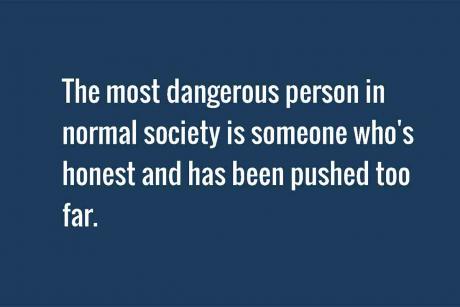The proposed legislation would allow the provincial government to continue to make emergency orders without having to declare a state of emergency. This means that the government could bypass the normal legislative process and impose restrictions on citizens without their consent or input. This is concerning because it gives the government too much power and could lead to abuse of those powers. It also violates Charter-protected rights, such as freedom of assembly, which are essential for a functioning democracy.
Citizens should be concerned about this power-grab by the premier and should contact their local representatives to voice their concerns. They should also consider joining organizations that are advocating against this proposed legislation and other unjustified violations of Charter-protected rights.
The proposed legislation also allows for the government to make orders that override collective agreements, which could include orders that require workers to be redeployed or reassigned to different roles. This could potentially lead to a situation where workers are forced to take on roles they are not qualified for or do not have the necessary training for.
The proposed legislation also allows for the government to make orders that allow police officers to demand identification from individuals without any reasonable suspicion of criminal activity. This practice, known as carding, has been widely criticized by civil rights groups and has been found to disproportionately target racialized communities.
Finally, the proposed legislation allows for the government to make orders that allow for personal health information to be shared with third parties without consent. This could potentially lead to a situation where individuals’ private medical information is shared without their knowledge or consent, raising serious privacy concerns.
The government is attempting to protect the health and safety of its citizens, which is a pressing and substantial objective. The measures taken are rationally connected to this objective, as they limit the spread of the virus by reducing contact between people. Furthermore, these limits are proportionate in their effects, as they do not completely eliminate the rights in question but rather impose reasonable restrictions on them.
In conclusion, while it is true that these limits to our Charter protected rights may be seen as an infringement on our freedoms, they are likely justified under section 1 of the Charter given the pressing and substantial objective of protecting public health during a declared state of emergency.
Once the government announces that the state of emergency has ended, it is no longer necessary to limit citizens’ rights. The government should then take steps to restore those rights and ensure that they are not infringed upon in the future. This could include passing laws or regulations that protect citizens’ rights, as well as providing education and awareness campaigns about the importance of respecting those rights. Additionally, the government should work to ensure that any restrictions put in place during the state of emergency are removed and that citizens have access to all of their previously enjoyed freedoms.
In order to declare a state of emergency, the government must be able to demonstrate that the situation is serious and requires immediate action. The government must also be able to show that it has exhausted all other available options before declaring an emergency. Once declared, the government can then issue emergency orders which are legally binding and have the force of law. These orders may include restrictions on movement, curfews, or other measures necessary to protect public safety.
The orders that can be made by cabinet during an emergency include:
-Imposing restrictions on movement, gatherings and activities;
-Closing or restricting access to certain places;
-Requiring people to stay in their homes or other places;
-Regulating the sale, supply and distribution of goods and services;
-Suspending or modifying certain laws;
-Establishing special courts or tribunals to deal with matters arising from the emergency.
The orders issued under the emergency are continuing under Bill 195 because they are necessary to protect public health and safety. The government is of the view that the province is no longer in a state of emergency, but it recognizes that there are still risks associated with the COVID-19 pandemic and that additional measures must be taken to ensure public safety. As such, the orders issued under the emergency remain in place until further notice.
The bill also removes the requirement for the Premier to consult with the opposition parties before issuing orders. Under the EMCPA, the Premier must consult with opposition leaders and other stakeholders before issuing orders. The bill also removes the requirement for the government to provide a detailed explanation of why an order is necessary when it is issued. This was a key accountability measure under the EMCPA.
Sheppard’s statement is an example of how the policy process works in times of emergency. He is suggesting that the government’s position on the COVID-19 pandemic has shifted the constitutional calculus, making it harder to justify orders that conflict with constitutional rights. This shift in policy is a direct result of the emergency situation, and it highlights how governments must respond to emergencies by changing their policies in order to protect citizens’ rights.
The Canadian Centre for Policy Alternatives (CCPA) released a report today that shows the federal government’s proposed tax changes will disproportionately benefit the wealthiest Canadians.
The report, titled “Tax Fairness for All: How the Federal Government’s Proposed Tax Changes Will Benefit the Wealthiest Canadians,” finds that the proposed changes to personal income taxes and capital gains taxes will result in an average annual tax cut of $2,000 for those earning over $250,000 per year. This is more than double the average tax cut of $800 for those earning between $50,000 and $90,000 per year.
The report also finds that the proposed changes will reduce federal revenues by an estimated $6 billion annually. This revenue loss could have been used to fund important public services such as health care and education.
The CCPA is calling on the federal government to reconsider its proposed tax changes and focus instead on measures that would make Canada’s tax system fairer and more progressive. The CCPA recommends increasing taxes on high-income earners, closing corporate tax loopholes, and introducing a wealth tax on individuals with net worths over $20 million.
You may also like


